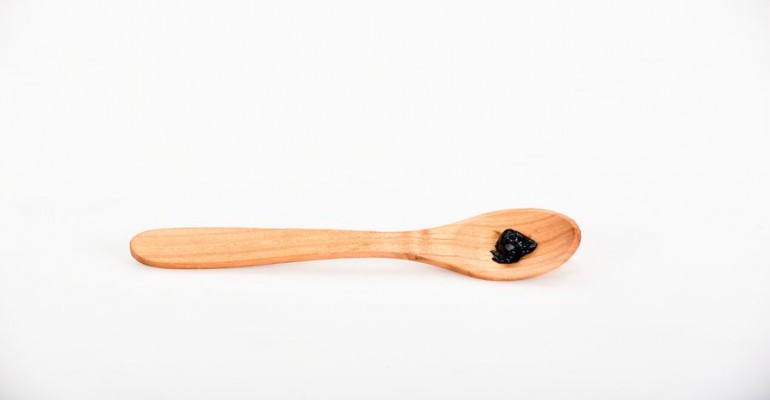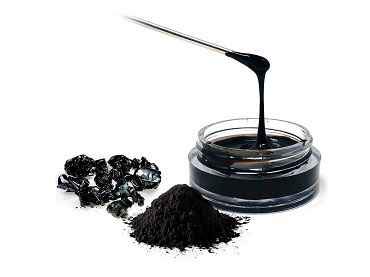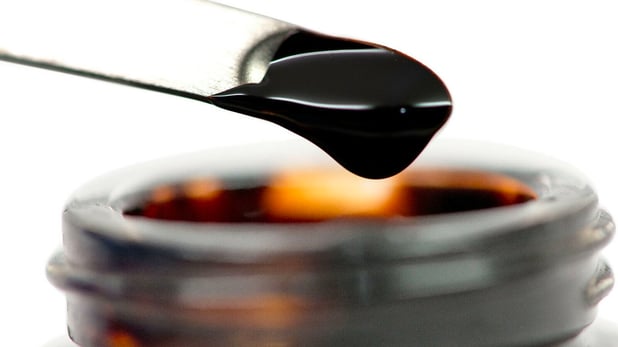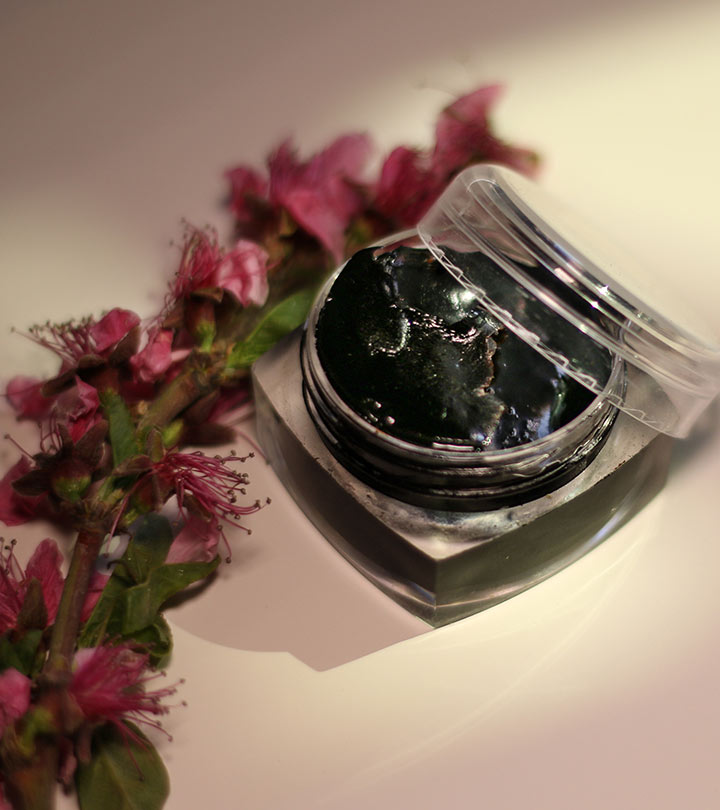What is Shilajit?
You may have heard of shilajit before but termed as "mineral pitch." Shilajit is created through a long process of plant material and mineral being broken down until it reaches the stage of what shilajit is known for.
It is known that shilajit originated from India and Tibet but is now more universally known. Traditionally, shilajit is an Indian Ayurvedic Medicine and it has been for centuries.
Shilajit is known to be beneficial to the health of the body if used correctly and is believed to be due to the high concentration of fulvic and humic acids.
What are the Benefits of Shilajit?
One of the many benefits of shilajit is its contribution to brain function. Some believe that it may even aid in the therapy of patients with Alzheimer's. It is noted in a study included the International Journal of Alzheimer's Disease that shilajit is believe to slow aging.
Researchers hope to gather more information and data on how shilajit can help slow or prevent cognitive disorders.
Since shilajit has properties of slowing things down, one study shows that it can slow aging due to one of its key compounds, fulvic acid.
Shilajit is also know to be high in humic acid and iron which helps with treating anemia. However, it is best to consult with your doctor before taking any supplements!
In addition, a study mentioned that shilajit has antiviral properties as it has shown to combat viruses in isolated environments. Although, there is still much more needed research to do in order to have sufficient data to prove this.
In other study, shilajit helps with chronic fatigue due to its properties of improving cell functions. Furthermore, shilajit has also shown its benefits when it comes to altitude sickness. This is due to the many minerals that it contains where it boosts brain function, improve the immune system while also reducing inflammation.
Since shilajit is known to fight off viruses and slow the process of aging, it is also believed to aid in the fight against certain cancer cells such as liver cancer. There is a study that demonstrated shilajit encouraged the destruction of liver cancer cells as well as stopped the cancer cells from multiplying.
Furthermore, not only does shilajit aid in brain function, it also improves cardiovascular health and can help you lose weight when incorporating an exercise routine.
Lastly, shilajit also helps with male fertility and encourages testosterone levels in men.

How to Use or Take Shilajit?
Shilajit comes in powder form and a form in which it can be dissolved in liquid. Most users prefer to dissolve shilajit in water or milk. However, this is based on your preference once you give it your initial try.
Depending on the source of shilajit that you take, you may take this supplement up to three times a day dissolved in the liquid of your choice. However, it is critical that you consult with your doctor first before starting any new supplements. The recommended dosage for shilajit is 300 to 500 milligrams per day.
Potential Side Effects
Although one of its benefits is to improve cardiovascular health by lowering blood pressure, one of its side effects is lowering blood pressure way below the accepted readings. It is important to take note of this especially for individuals with hypertension and taking medication(s) for high blood pressure.
It is also highly recommended to ensure that your shilajit comes from a reputable source. There have been some cases where low-quality shilajit is tainted with harmful substances such as heavy metals and even arsenic.

Main Takeaway
When used correctly, shilajit offers many benefits to the body's health. It is important to consult with your doctor beforehand and ask for the correct dosage. It is also helpful to have a provider monitor potential side effects.
References
- Biswas, T. K., Pandit, S., Mondal, S., Biswas, S. K., Jana, U., Ghosh, T., ... Auddy, B. (2010, February). Clinical evaluation of spermatogenic activity of processed Shilajit in oligospermia [Abstract]. Andrologia, 42(1), 48–56
https://www.ncbi.nlm.nih.gov/pubmed/20078516/ - Cagno, V., Donalisio, M., Civra, A., Cagliero, C., Rubiolo, P., & Lembo, D. (2015, May 26). In vitro evaluation of the antiviral properties of Shilajit and investigation of its mechanisms of action. Journal of Ethnopharmacology, 166, 129–134
https://iris.unito.it/retrieve/handle/2318/1521394/38005/Paper%20post%20print.pdf - Carrasco-Gallardo, C., Guzmán, L., & Maccioni, R. B. (2012, February 23). Shilajit: A natural phytocomplex with potential procognitive activity. International Journal of Alzheimer's Disease, 2012, 674142
https://www.ncbi.nlm.nih.gov/pmc/articles/PMC3296184/ - Das, A., Datta, S., Rhea, B., Sinha, M., Veeraragavan, M., Gordillo, G., & Roy, S. (2016, July 1). The human skeletal muscle transcriptome in response to oral Shilajit supplementation. Journal of Medicinal Food, 19(7), 701–709
https://www.ncbi.nlm.nih.gov/pmc/articles/PMC4948208/ - Joukar, S., Najafipour, H., Dabiri, S., Sheibani, M., & Sharokhi, N. (2014, September). Cardioprotective effect of mumie (shilajit) on experimentally induced myocardial injury [Abstract]. Cardiovascular Toxicology, 14(3), 214–221
https://link.springer.com/article/10.1007/s12012-014-9245-3 - Khaksari, M., Mahmmodi, R., Shahrokhi, N., Shabani, M., Joukar, S., & Aqapour, M. (2013, July). The effects of shilajit on brain edema, intracranial pressure and neurologic outcomes following the traumatic brain injury in rat. Iranian Journal of Basic Medical Sciences, 16(7), 858–864
https://www.ncbi.nlm.nih.gov/pmc/articles/PMC3758058/ - Meena, H., Pandey, H. K., Arya, M. C., & Ahmed, Z. (2010, January–March). Shilajit: A panacea for high-altitude problems. International Journal of Ayurveda Research, 1(1), 37–40
https://www.ncbi.nlm.nih.gov/pmc/articles/PMC2876922/ - Pandit, S., Biswas, S., Jana, U., De, R. K., Mukhopadhyay, S. C., & Biswas, T. K. (2016, June). Clinical evaluation of purified Shilajit on testosterone levels in healthy volunteers. Andrologia, 48(5), 570–575
http://onlinelibrary.wiley.com/doi/10.1111/and.12482/full - Pant, K., Gupta, P., Damania, P., Yadav, A. K., Gupta, A., Ashraf, A., … Venugopal, S. K. (2016, May 27). Mineral pitch induces apoptosis and inhibits proliferation via modulating reactive oxygen species in hepatic cancer cells. BMC Complementary & Alternative Medicine, 16(1), 148
https://www.ncbi.nlm.nih.gov/pmc/articles/PMC4882837/ - Surapaneni, D. K., Adapa, S. R. S. S., Preeti, K., Teja, G. R., Veeraragavan, M., & Krishnamurthy, S. (2012, August 30). Shilajit attenuates behavioral symptoms of chronic fatigue syndrome by modulating the hypothalamic–pituitary–adrenal axis and mitochondrial bioenergetics in rats [Abstract]. Journal of Ethnopharmacology, 143(1), 91–99
http://www.sciencedirect.com/science/article/pii/S0378874112003893 - Velmurugan, C., Vivek, B., Wilson, E., Bharathi, T., & Sundaram, T. (2012, March). Evaluation of safety profile of black shilajit after 91 days repeated administration in rats. Asian Pacific Journal of Tropical Biomedicine, 2(3), 210–214
https://www.ncbi.nlm.nih.gov/pmc/articles/PMC3609271/

















